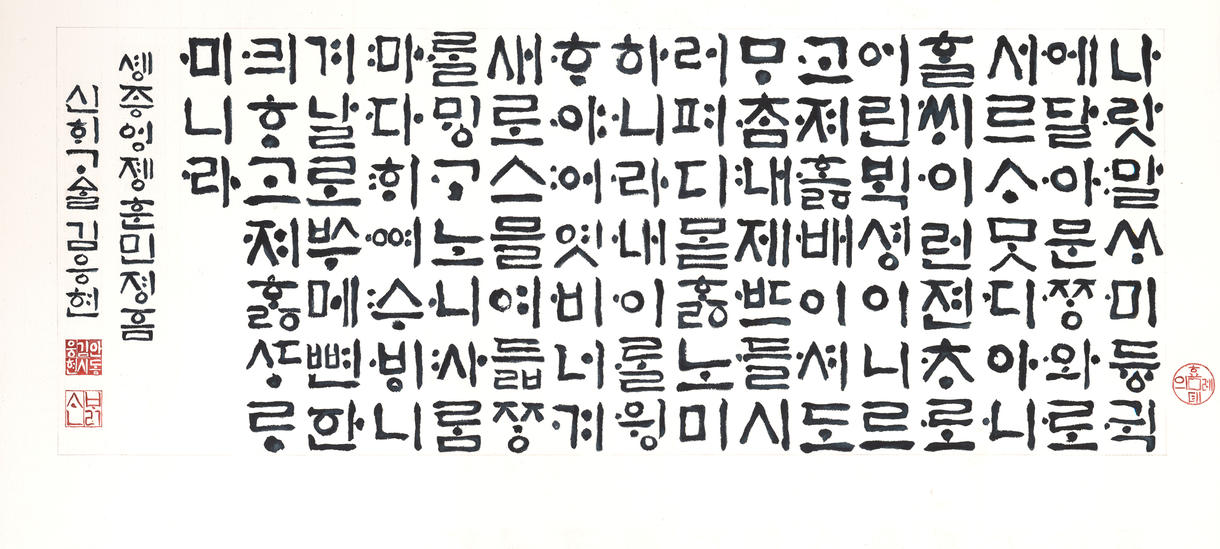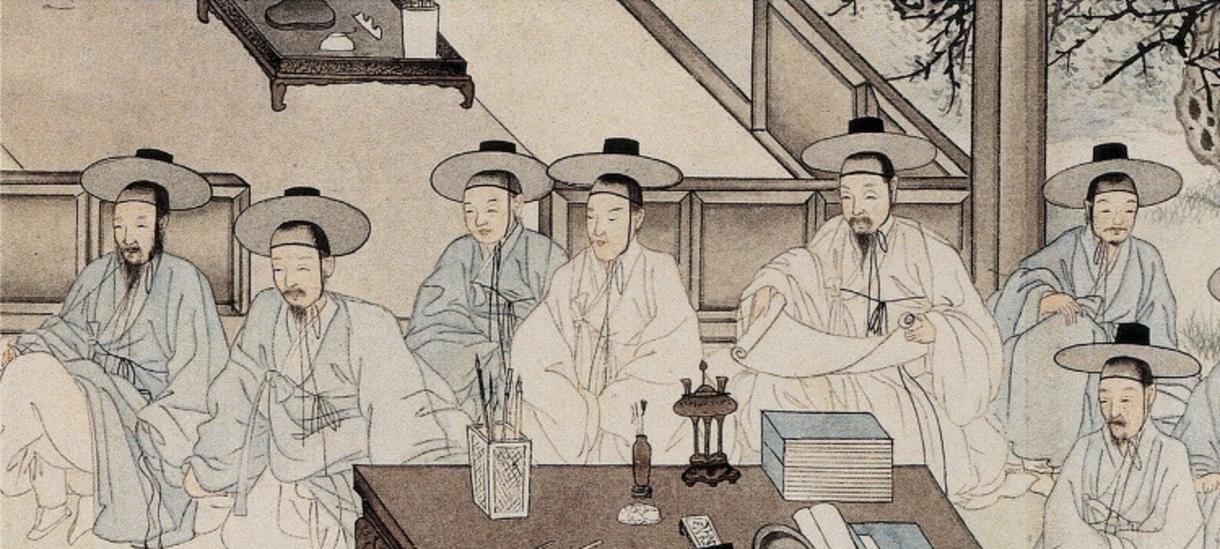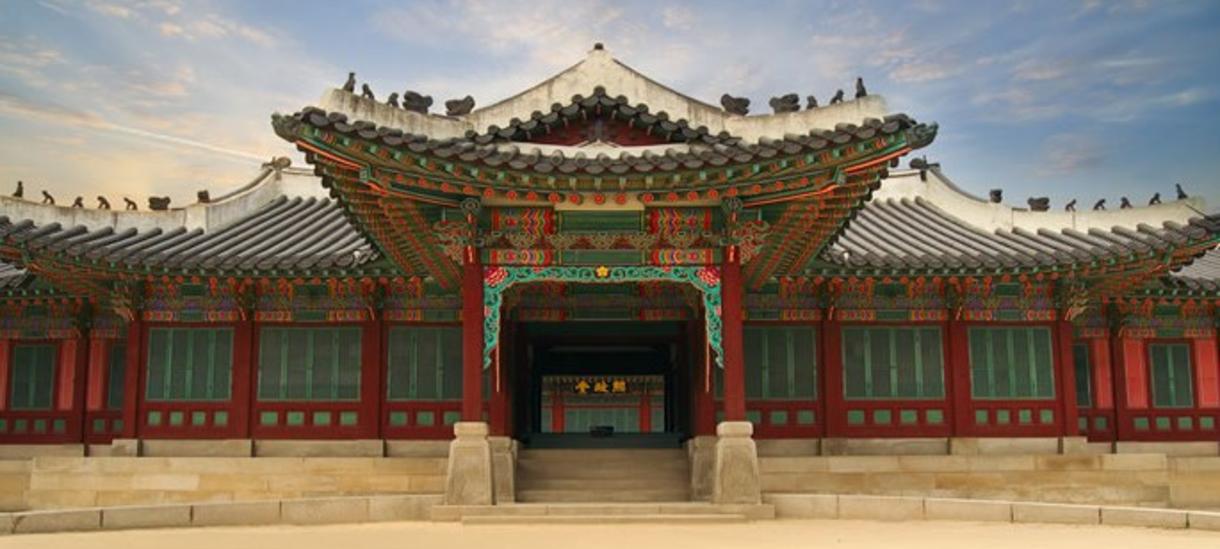Students can supplement their Korean language learning using the electronic resources listed below. We currently offer resources for language, literary, arts and cinematic, or historical studies.
Language Studies
The National Institute of the Korean Language (국립국어원)
The National Institute of the Korean Language was established for the purpose of developing the Korean language, improving the daily language-usage of the people, and administering linguistic research activities. The Institute conducts research for language policies, manages Korean linguistic rules, maintains a Korean dictionary to further service language learners and users, improves the environment of Korean language-usage to ensure smooth communication, and strives to increase the quality of Korean language education.
King Sejong Institute Foundation (누리-세종학당)
The King Sejong Institute Foundation (KSIF) is a public institution under the Ministiry of Culture, Sports, and Tourism, which was established to manage Korean language education abroad and the distribution of Korean culture. KSIF strives to inform foreigners about the Korean language and culture, and to help grow their interest into an understanding of and love for Korea by offering free online lessons in the Korean language for beginners and advanced learners alike.
The Korean Language Society (한글 학회)
The Korean Language Society is an academic society of the Korean people that works to preserve Korea's spirit and culture through the preservation of and research into the Korean language. The Society strives to both streamline and dignify colloquial language as well as promote accurate communication by studying and scientifically scripting the Korean language in collaboration with a number of young scholars and promoting Korean language learning abroad. Students can investigate a number of different projects and competitions hosted by the Society, as well as their Korean language learning series.
Korean Language Education and Research Center
The Korean Language Education and Research Center (KLEAR) was founded to further pedagogical research, teacher training, and development of instructional materials essential for a comprehensive and successful overseas Korean language education. KLEAR offers a well-developed series of textbooks, lectures (complete with presentation slides), audio files, and online courses for Korean language learners to peruse and use at their leisure.
Korean Learning for Correct Pronunciation (바른소리)
The Korean Learning for Correct Pronunciation was made and is maintained by the National Institute of the Korean Language. It offers an interactive platform for students to practice listening to and repeating vowels and consonants, either in isolation or in combination with one another, as well as examples that place the phonemes in context of larger words and sentences.
Literary Studies
Dictionary of Korean Contemporary Literature (한국현대문학대사전)
Compiled by Professor Kweon Yeongmin of Seoul National University, the Dictionary of Korean Contemporary Literature covers works of modern Korean literature from 1895 to 1994, for a total 60,000 literary works and data on 4,000 authors or writers. The Dictionary contains not only bibliographies of poems and novels, but also bibliographies of important critiques and analytical responses, which allows readers a perspective into the current rend of modern literature in Korea. Through this organized database covering over a century's worth of vast literary materials, users can more easily learn about literary information and professional researchers can more quickly and accurately located the necessary information.
Arts Council Korea (한국문화예술위원회)
Arts Council Korea (ARKO) is a national organization for the arts of Korea. To make the arts more central to life, ARKO supports arts organizations and artists in Korea and overseas through various services, programs, and initiatives, as well as grant-based support. ARKO focuses on establishing infrastructure fr non-profit and boundary-pushing projects in art and the cultural industry. Students may use this resource as a starting point for exploring other diverse programs and services.
Literature Translation Institute of Korea(한국문학번역원)
The Literature Translation Institute of Korea strives to presernve the integrity and character of Korean literature while also enhancing communication between it and global literature. Launched in 2001 with the Korean Literature Translation Treasury, the Institute works to share Korean literature and culture with the rest of the world in pursuit of a world that respects and esteems every nation's literary culture equally. Currently, the Institute focuses on Korean literature from the traditional era. It offers multiple volumes of journals on Korean literature in both Korean and English, as well as full-text translations of select works into a number of languages (in the format of PDF files).
Art & Cinematic Studies
National Museum of Korea (국립중앙박물관)
The National Museum of Korea (NMK) strives to provide visitors with the most entertaining and informative cultural experiences through an array of exhibitions and informative programs. The collection is presented in rotating displays across their six permanent exhibition halls, in addition to special exhibitions. NMK's collection covers the comprehensive history of Korea, including the Paleolithic Age, the Three Kingdoms Period, the Joseon Dynasty, and contemporary Korea. Digital users may view guides to their permanent and special exhibitions or peruse their digital gallery and online exhibits.
National Museum of Modern and Contemporary Art (국립현대미술관)
Established in 1969 with the purpose of accomodating modern and contemporary art from both Korean and international creators, the National Museum of Modern and Contemporary Art (MMCA) is based in Gwacheon with three branches in Cheongju Deoksugung, and Seoul. MMCA also runs a variety of educational programs tailored to people of all ages that focus on engaging visitors in critical dialogues that further develop public perceptions and understandings of the works in MMCA's collection. Digital users may also enjoy their online museum exhibits.
Korean Film Council (영화진흥위원회), Korean Film Biz Zone
Established 1973, the Korean Film Council (KOFIC) is ap ublic institution that aims to improve the quality of Korean films and promote both the films themselves as well as the larger Korean film industry both domestically and internationally. KOFIC provides support to cinematic creators for the planning, investment in, development and production of, and distribution of Korean cinematography. Digital users may make full use of KOFIC's online database searching capabilities for films, people and creators, and film companies.
Korean Movie Database (한국영화데이터베이스)
The Korean Movie Database (KMDb) offers a myriad collection of information on Korean films, cast and crew, and other associated materials such as publications or reviews. Film entries cover information like plot, release date, reviews, cast and crew credit, and so on. KMDb also offers a special database for classic Korean films, released in the years between 1930 and 1970, and registered users may watch a select number of films for free on the database. Interested users may find it helpful to begin their search for Korean movies here.
Historical Studies
Korean Studies Database (한국학 디지털 아카이브)
Since 1999, the Academy of Korean Studies has maintained a Korean studies database built upon the resources at the Royal Jangseogak Library and research results related to Korean studies, as compiled and published by the Academy of Korean Studies. The resources of the Korean Studies Database are provided on the internet free of charge so that anyone, anytime, anywhere can use these resources.
Korean Historical Information Integrated System (한국역사정보 통합시스템)
The Korean Historical Information Integrated System provides historical resources to users by systematically and comprehensively computerizing them. With the participation of various history-related institutions as specialized centers, the Korean Historical Information Integrated System continues to develop their historical database. As a gateway platform, the System allows users to clearly and comparatively search for historical resources across the various specialized centers.
The Veritable Records of the Joseon Dynasty (조선왕조실록)
The Veritable Records of the Joseon Dynasty includes 28 different sets of chronological records, each covering one ruler's reign immediately after the death of the ruler in question. The collection covers the reigns of 25 rulers across a span of 472 years, from King Taejo to King Cheoljong.
Korean Old and Rare Collection Information System (한국고전덕동합목록시스템)
In 2004, the National Library of Korea developed the Korean Old and Rare Collection Information System (KORCIS) to serve as a database catalog of rare Korean books and manuscripts. These texts are sourced from 74 domestic and 48 international institutions (for a total of 122 institutions), numbering at 468,000 bibliographic texts with full access to 53,000 texts.




